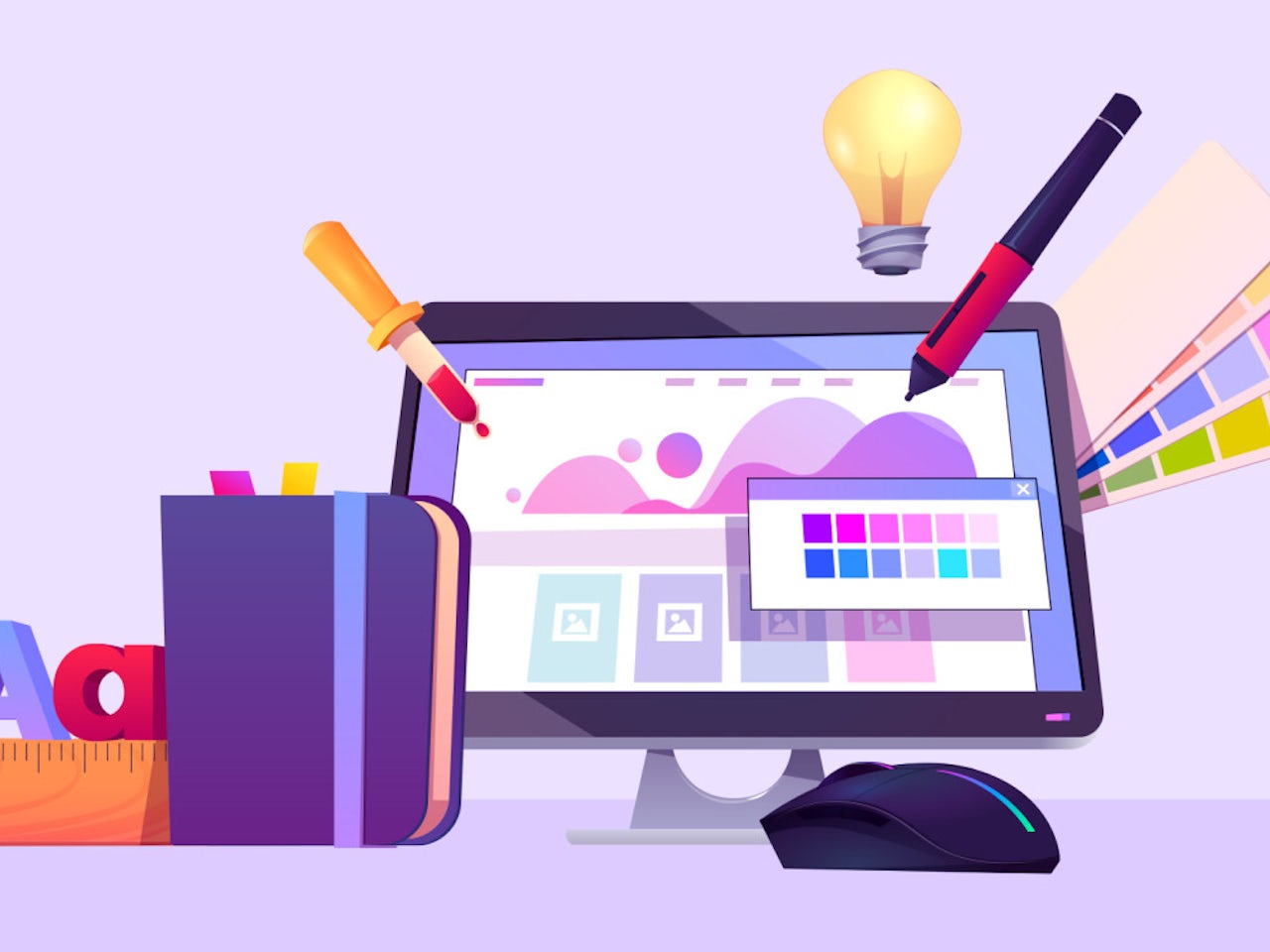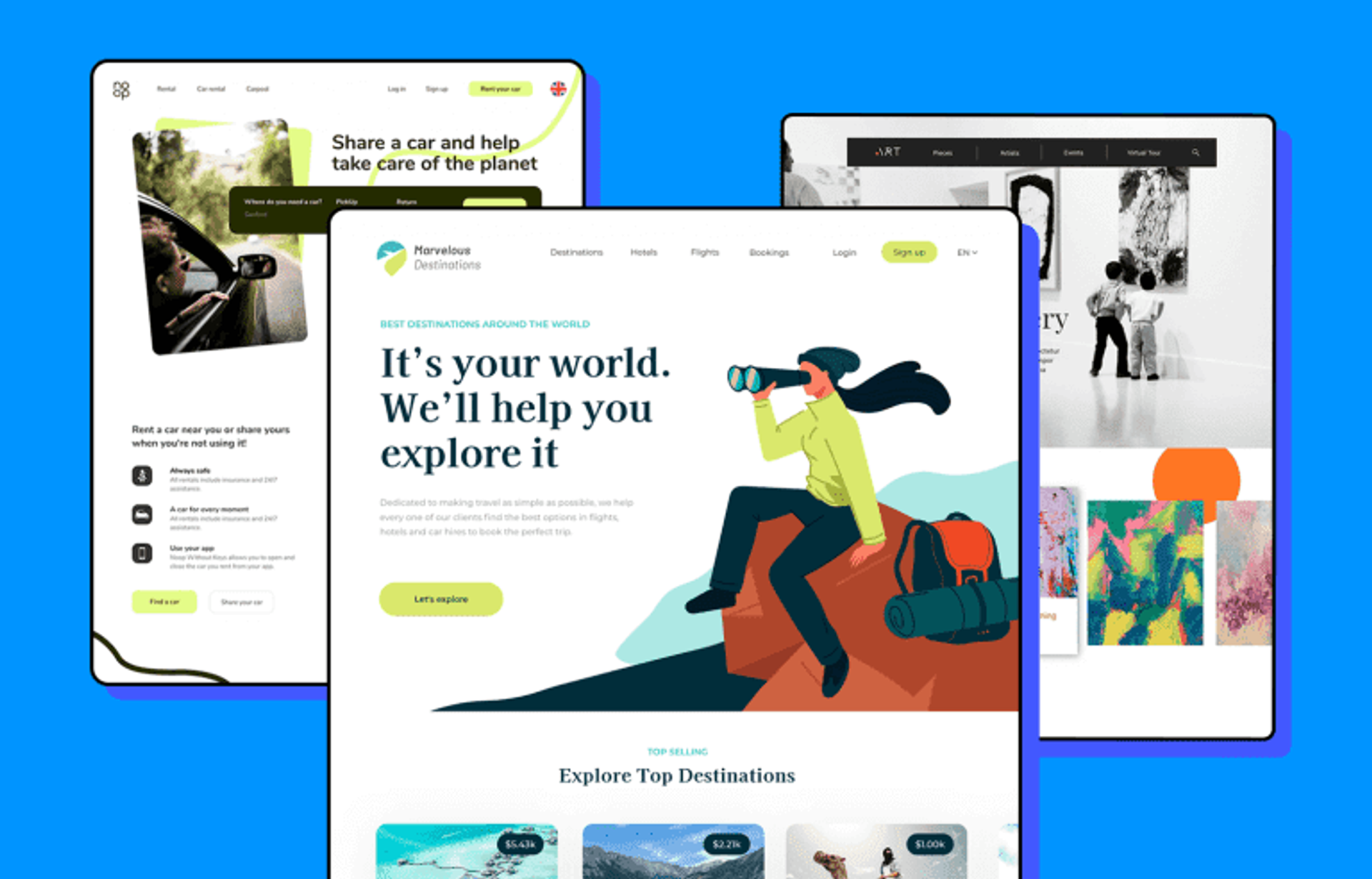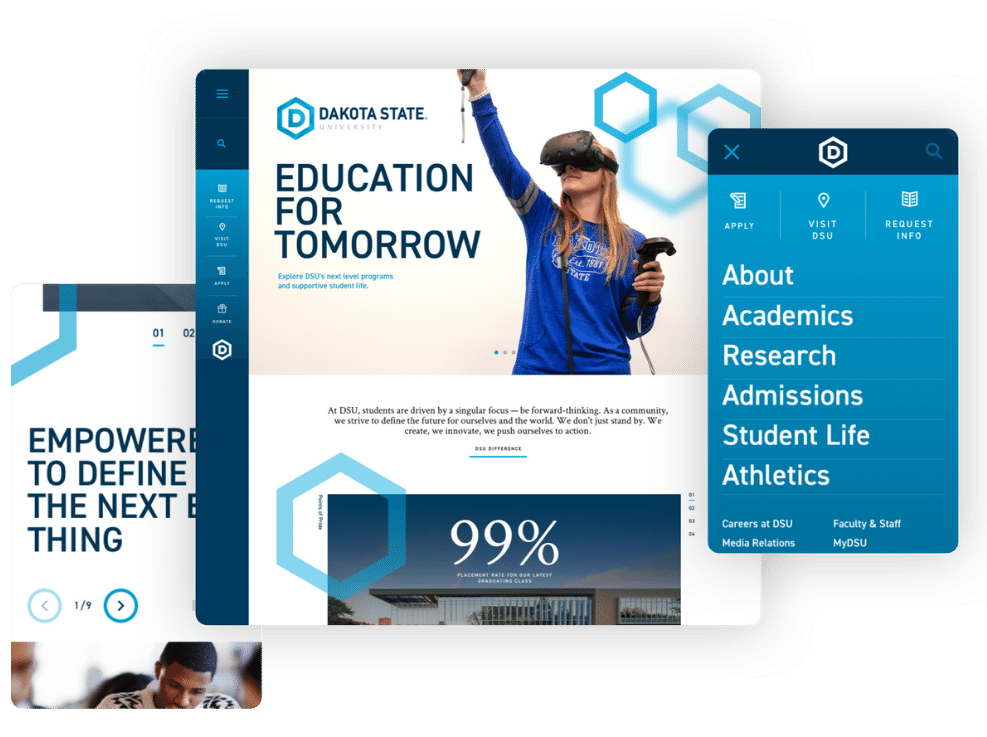How to Grow Your Online Identity with Professional Web Design In Guildford
How to Grow Your Online Identity with Professional Web Design In Guildford
Blog Article
Just How to Improve Individual Experience Through Strategic Web Layout
In the world of digital innovation, customer experience (UX) has actually ended up being the linchpin of effective website design. A critical, user-centered strategy, stressing aesthetic consistency, intuitive layouts, and receptive style, can substantially boost a web site's functionality and appeal. As we check out these concepts in information, the value of incorporating customer feedback and the function of UX in customer retention will certainly also be checked out, inviting a deeper understanding of this vital element of website design.
Understanding the Relevance of User Experience in Internet Design
The essence of website design lies not just in visual appeals, yet essentially in the customer experience it offers. Individual experience, or UX, describes the overall experience a person has while connecting with a site or internet application, particularly in regards to how comfortable and pleasing it is to use (Web Design In Guildford). It is an essential aspect of website design, as it directly affects the customers' impressions, activities, and total interaction with the web site
A properly designed website with a bad user experience is similar to a gorgeous structure with an inadequately prepared inside; it might look appealing on the surface, but it stops working to serve its intended objective efficiently. It may discourage individuals from remaining on the website, leading to high bounce rates, low individual involvement, and ultimately, failing to accomplish the web site's goals. This highlights the relevance of integrating user experience into the website design procedure right from the outset.
Applying User-Centered Design Principles
The application of user-centered style concepts begins with comprehending individual behavior. This expertise forms the basis for producing an effective interface style. These two crucial elements, when skillfully incorporated, result in a boosted user experience on any kind of site.

Understanding User Habits
Why do customers act the way they do on internet sites? Individual behavior is determined by a wide range of variables, principal among them being their certain needs and choices, prior online experiences, and total web savviness. The layout of the web site also plays a substantial function. A tidy, user-friendly format can assist users to act in a certain way, such as leading them towards particular activities or information. On the other hand, a chaotic or complicated style can inhibit interaction and bring about high bounce rates. Recognizing user habits entails examining and evaluating these patterns and patterns. Utilizing this knowledge, web developers can create extra efficient, user-friendly sites that fulfill the needs of their target market, consequently enhancing customer experience.
Effective User Interface Design

Leveraging Receptive Design for Optimum Viewing
Moving on in the discussion, the interest currently moves to the importance of leveraging responsive layout for ideal watching. This includes exploring the procedure of implementing receptive website design and comprehending its effect on customer experience. The taking place discussion intends to illuminate the benefits of ideal watching and just how receptive layout promotes it.
Carrying Out Responsive Web Layout
Using the power of receptive website design is an important step in the direction of boosting user experience. To apply this successfully, internet designers have to consider a selection of elements. The format should adapt seamlessly to numerous screen dimensions, from desktop displays to smaller mobile tools. This needs a flexible grid-based system, guaranteeing content resizes smoothly. Photos ought to additionally be flexible, adapting to fit the readily available display location without distortion. In addition, designers need to incorporate media inquiries, making it possible for the site to recognize the user's gadget kind and screen dimension. These elements combined produce a receptive internet style that gets used to the individual's requirements. While the process may seem complicated, the result is a much more obtainable and intuitive website, considerably improving the user experience.
Advantages of Optimal Watching

Furthermore, receptive layout can lead to enhanced search engine optimization positions, as online search engine favor sites that accommodate several tools. Last but not least, it can reduce bounce rates and improve conversion rates as users are less likely to abandon sites that are simple to browse. Hence, optimal watching can dramatically enhance individual experience, making it a crucial facet of critical web style.
Including Easy Navigating and Intuitive Layouts
Alleviate and instinct in web site navigation develop the bedrock of customer fulfillment. If users struggle to discover what they are searching for, they are likely to abandon the website and seek alternatives. A critical internet layout have to incorporate clear, easy-to-follow navigation and an instinctive format. This can be achieved by arranging info in a hierarchical structure, with one of the most important sections prominently featured.
Basic navigation food selections, breadcrumb tracks, and clickable buttons assist individuals through the internet site easily. Consistency in layout aspects throughout pages additionally contributes to intuitive navigating. Putting the search bar or the buying cart symbol in the same place on every web page enables users to find these attributes rapidly.
In addition, an intuitive design is one that prepares for user requirements. It puts components and information where individuals anticipate them to be. This reduces the cognitive lots on users, enhancing their overall experience on the web site.
The Function of Visual Design in Customer Experience
While the framework and layout of an internet site are substantial for individual experience, the visual design plays a just as important function. It is the aesthetic design that originally draws the user's interest, making it a crucial part in producing an immersive and interesting experience. Aesthetic layout elements such as shade, typography, photos, and symbols communicate the brand's message, produce a mood, and overview customers' communications on the page. A well-executed aesthetic layout can not just attract customers however additionally assist them understand the content far better and browse the site a lot more easily. Nonetheless, a inconsistent or chaotic aesthetic design can lead and perplex users to an unfavorable customer experience. Internet designers must purposefully utilize description visual design elements to create a unified and intuitive individual interface that enhances the general user experience. This procedure requires a deep understanding of the target customers, their requirements, and choices, in addition to the brand name's identity and objectives.
Instance Studies: Successful User Experience Layout in Action
In spite of the academic expertise on customer experience layout, it obtains actual worth when used in functional situations. Airbnb, a worldwide on the internet market, effectively improved their customer experience by upgrading their web site.
In one more instance, the New York Times revamped their site to prioritize customer experience. They optimized their website for mobile usage, comprehending that a growing variety of their readers accessibility information by means of mobile phones - Web Design In Guildford. They also streamlined their material presentation, making it simpler for visitors to browse and discover relevant articles. The outcomes were a considerable increase in mobile Resources traffic and customer interaction, demonstrating the efficacy of strategic web style in improving customer experience. These case researches show that practical application of customer experience design can generate considerable advantages.
Verdict
Finally, tactical website design is a crucial tool in improving customer experience. By applying user-centric layout principles, leveraging receptive design, including intuitive navigating and layouts, and taking advantage of the power of visual layout, companies can develop web sites that are engaging and pleasing for individuals. Effective web layout, showcased through different successful instance studies, considerably increases customer engagement and retention prices, proving its vital role in electronic success.
As we check out these concepts in detail, the significance of incorporating individual responses and the function of UX in user retention will certainly likewise be taken a look at, inviting a deeper understanding of this crucial facet of web layout.
It may discourage customers from remaining on the website, leading to high bounce rates, low user interaction, and ultimately, failing to accomplish the web site's goals. A inconsistent or chaotic aesthetic layout can confuse customers and lead to a negative user experience. Web designers must strategically utilize visual layout aspects to produce a instinctive and harmonious individual interface that boosts the total individual experience. The outcomes were a substantial boost in mobile web traffic and user interaction, demonstrating the effectiveness of strategic internet layout in boosting user experience.
Report this page